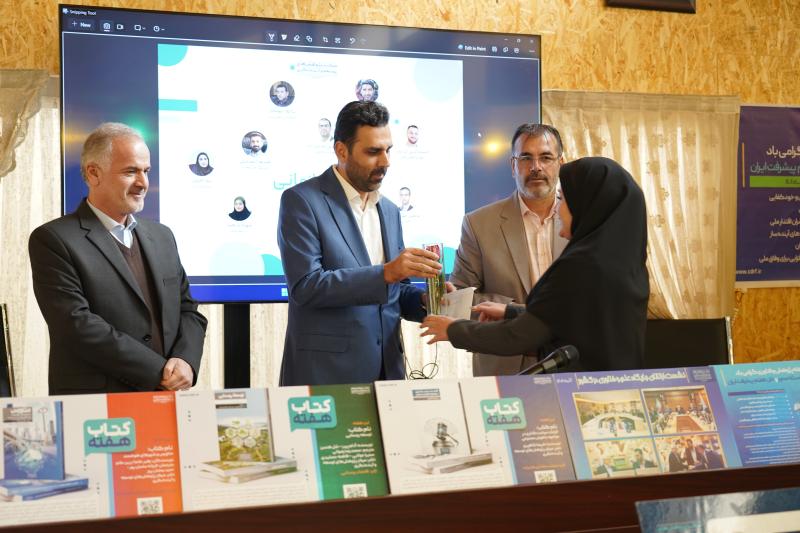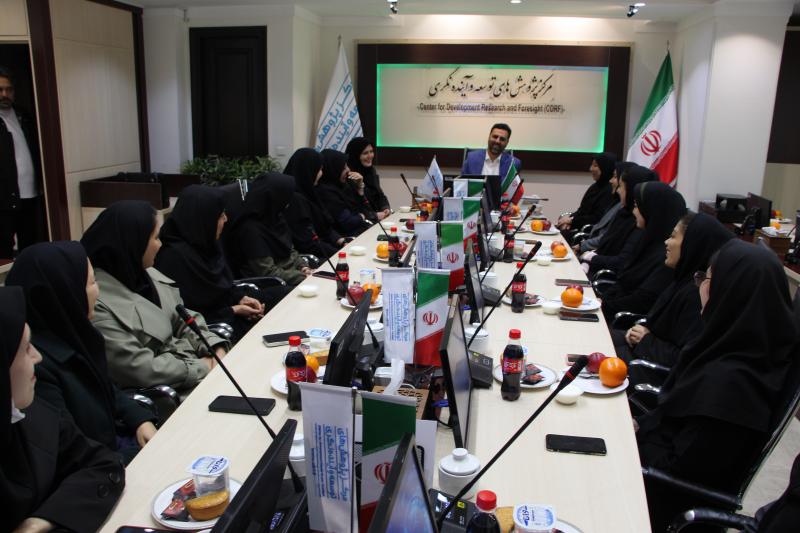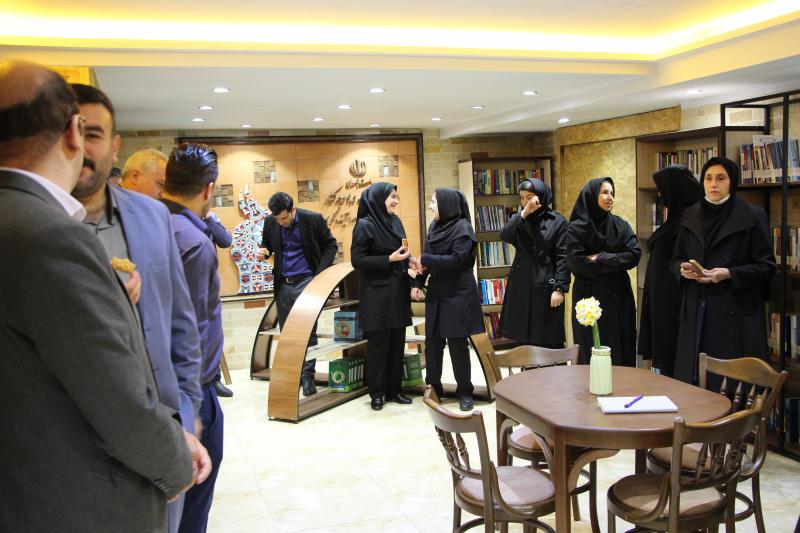
-
بررسی آییننامهها و دستورالعملهای برنامه هفتم پیشرفت
-
بررسی عوامل موثر بر افزایش تصادفات و تلفات جادهای و سوانح رانندگی و دادهکاوی تلفات انسانی
-
سازماندهی و بازآرایی فضایی آموزش عالی کشور
-
به روز رسانی سند ملی آمایش سرزمین
-
انجام مطالعات مناطق آزاد به عنوان نواحی پیشران اقتصادی کشور
-
اصلاح ساختار بودجه و پیاده سازی نظام یکپارچه مدیریت اطلاعات مالی دولت (IFMIS)
کلید واژه : Productivity
تعداد اخبار : 13
.jpg)
CDRF Conference Discusses Planning-oriented Governance for Water, Food, and Farmer's Livelihood Security
The Center for Development Research and Foresight (CDRF) held a conference on planning-oriented governance for water, food, and farmer's livelihood security. The conference speakers discussed the importance of agriculture in land use planning, the three pillars of food security, and global challenges to food security. They also defined land use planning and food sovereignty, and emphasized the importance of sustainable farming practices. The CDRF conference highlighted the critical role of agriculture and food security in land use planning. The speakers discussed the challenges to food security and the need for sustainable farming practices. They also emphasized the importance of empowering producers and consumers with control over the production, distribution, and consumption of food.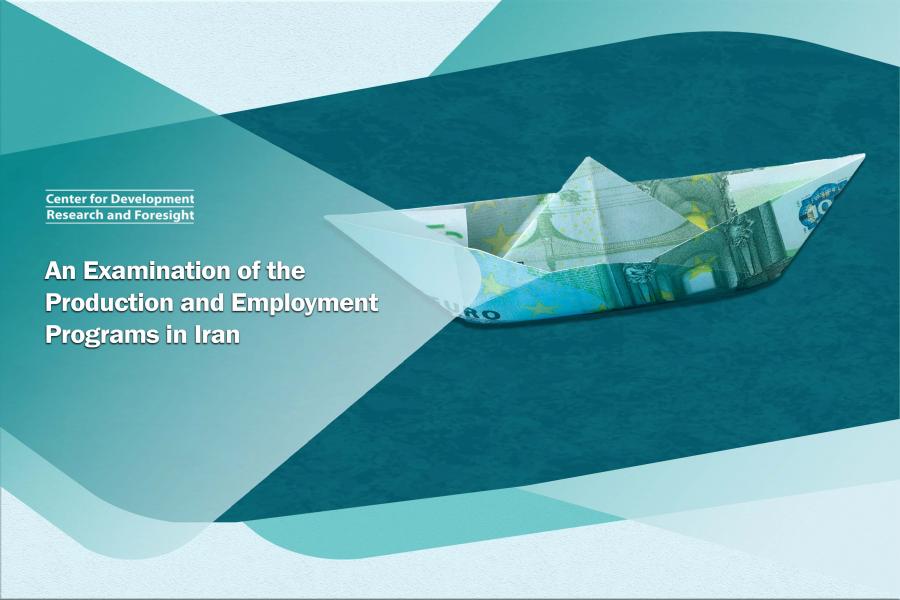
An Examination of the Production and Employment Programs in Iran
Commencing in 2016, the Iranian annual budget legislation has consistently highlighted employment support, production and employment, as articulated in Article 18. A comprehensive examination has been undertaken on the way that Article 18 has been performed within this specified duration. The examination disclosed the existence of certain deficiencies in planning.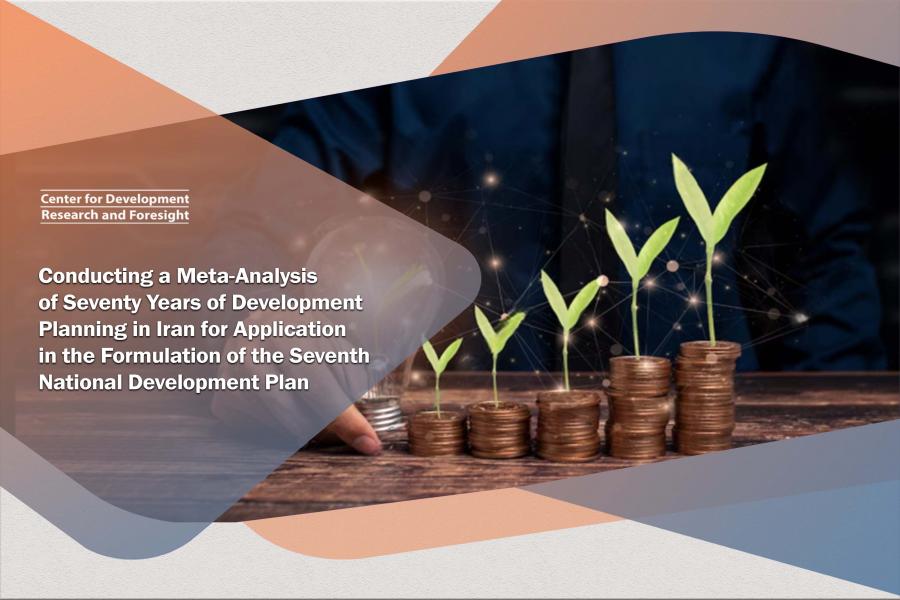
Conducting a Meta-Analysis of Seventy Years of Development Planning in Iran for Application in the Formulation of the Seventh National Development Plan
The development plan in Iran has been shaped by the evolution of the plan itself, following an established planning procedure. A crucial factor for successful planning is the establishment of a shared understanding and consensus on regulations, which serve as a blueprint for the content and structure of the plan among policymakers and planners. Given the importance of this issue, and recognizing that the formulation of regulations will be a pivotal step in advancing the seventh development plan, this study aims to delineate and clarify the regulatory elements of this plan.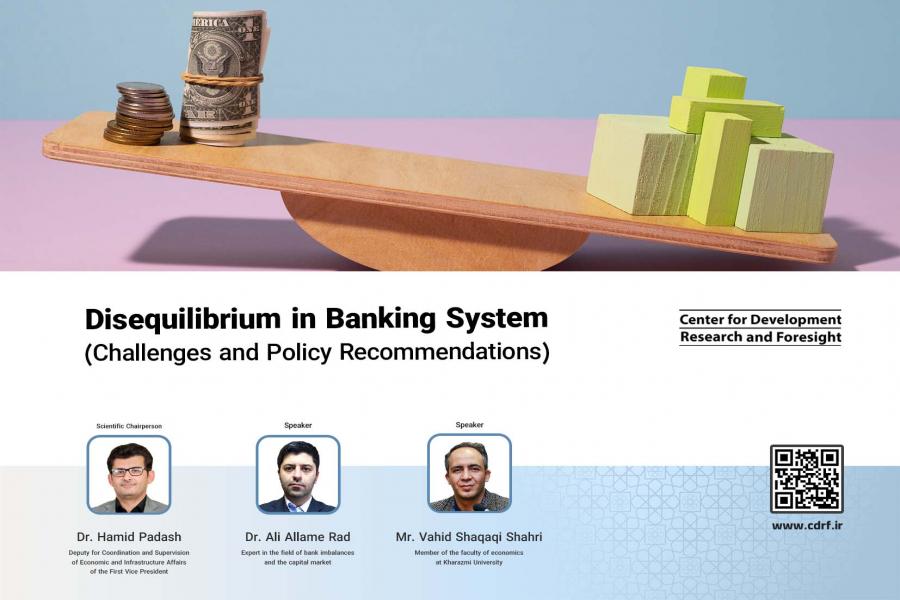
Disequilibrium in Banking System: Challenges and Policy Recommendations
The banking sector's disequilibrium has emerged as a pervasive and enduring challenge within the nation's macroeconomic framework. A series of strategic missteps have plagued the banking sector over the preceding four decades, including: the absence of unified Central Bank oversight from the late 1960s until 1994, despite formal recognition (substantive supervision remained deficient), the premature privatization of the banking industry without adequate national economic preparation, the imposition of government expenditures on private and non-governmental banks, particularly to offset a portion of the budget deficit, the perpetuation of a traditional view of money as a private commodity (a primary factor exacerbating domestic inflation), and vacillation between disparate economic schools, shifting from socialist to capitalist ideologies.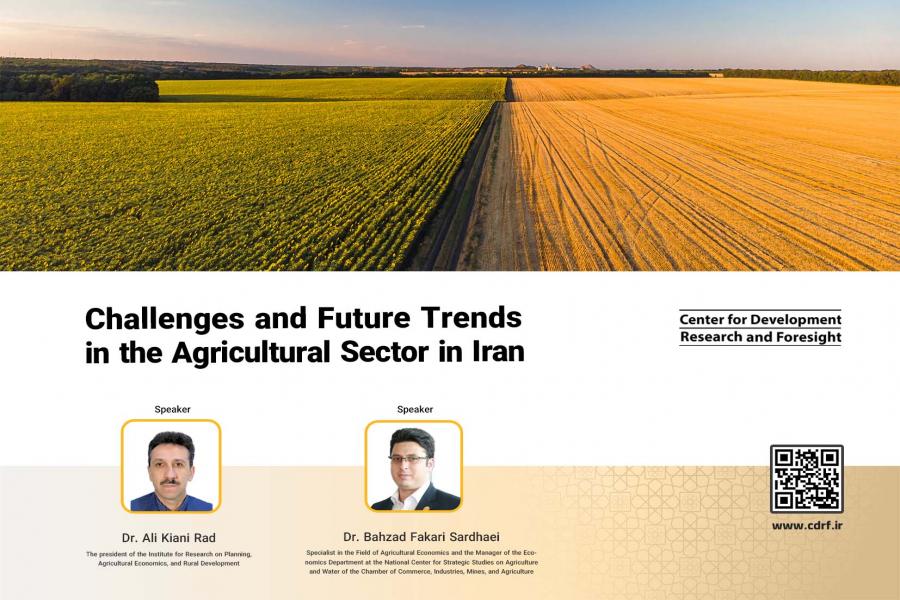
Challenges and Future Trends in the Agricultural Sector in Iran
Agriculture plays a critical role in Iran's economy, providing employment for over 15% of the workforce. While the sector holds immense potential for growth and development, it also faces significant challenges. Identifying these challenges and their impact on the agricultural system is essential for policymakers and stakeholders to formulate effective and targeted policies that address both current and potential issues, thereby enhancing the sector's resilience and enabling it to achieve sustainable development goals.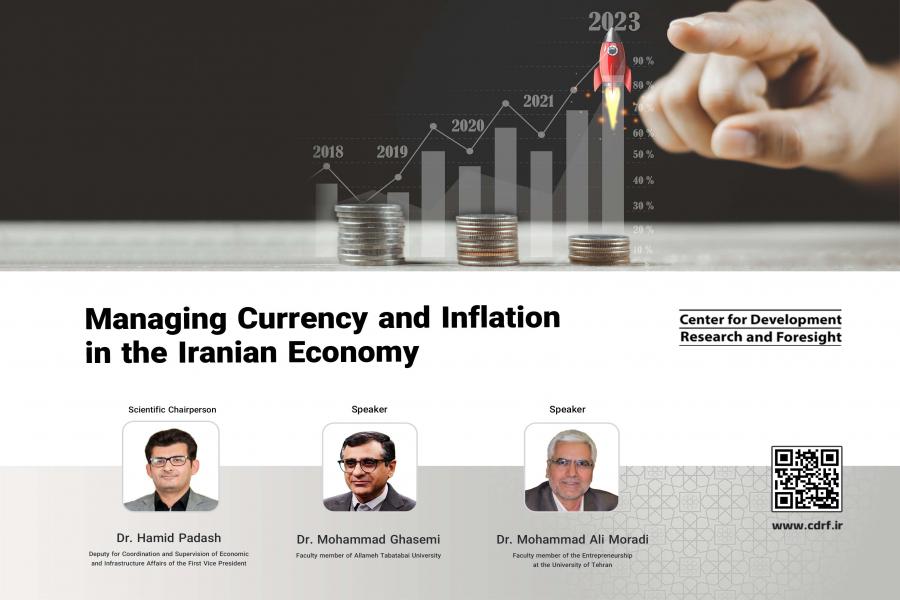
Exchange Rate and Inflation Policies in Iran's Economy
Inflation and exchange rate fluctuations have been persistent challenges in Iran's economy for several decades, leaving policymakers grappling with these issues. Double-digit inflation rates and currency shocks have become almost commonplace, characterizing the country's macro-economy for nearly half a century. However, in the past five years, these two issues have exacerbated Iran's economic situation, leading to unprecedented levels of inflation and exchange rates. Addressing inflation has become a priority in the country's policymaking, as reflected in the current year's slogan.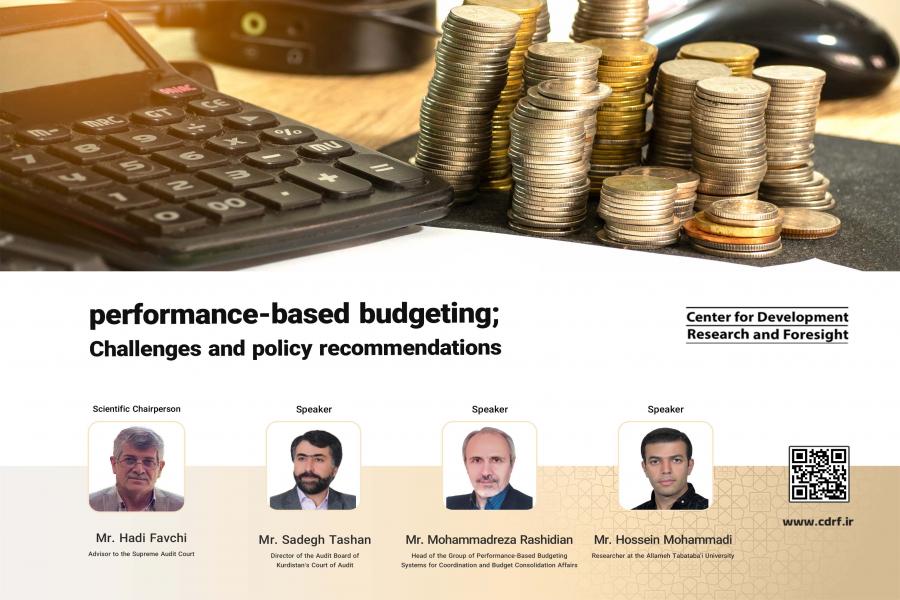
performance-based budgeting; Challenges and policy recommendations
Performance-based budgeting fosters optimal resource utilization, enhances productivity through efficiency improvement, facilitates the achievement of goals, aligns strategic objectives with operational plans, and promotes transparency and accountability. When properly implemented and scientifically managed, this type of budgeting lays the groundwork for good governance and facilitates the realization of societal values.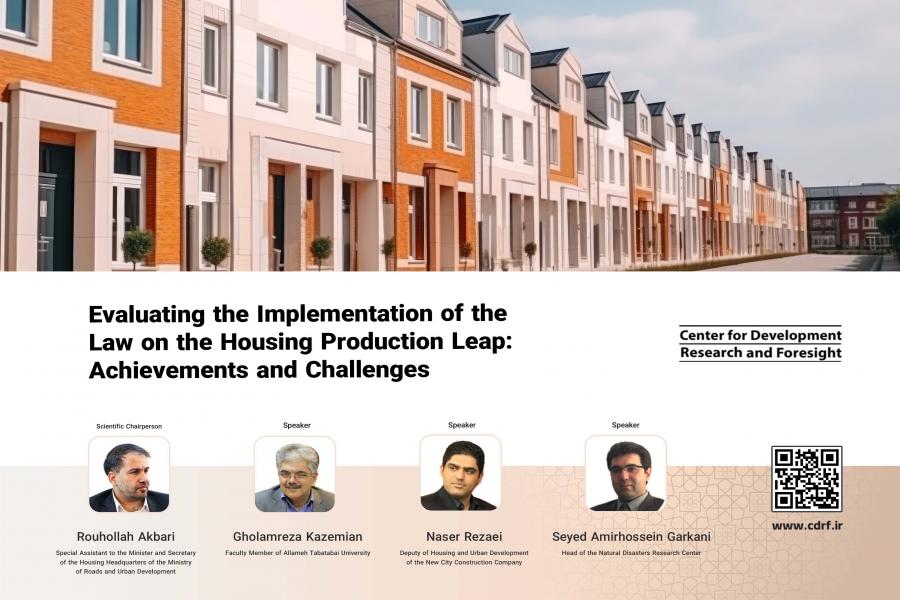
Evaluating the Implementation of the Law on the Housing Production Leap: Achievements and Challenges
In a recent conference titled "Evaluating the Implementation of the Law on the Housing Production Leap: Achievements and Challenges" hosted by the Center for Development Research and Foresight (CDRF) it has been an enlightening debate surrounding the effectiveness of the Law on Housing Production Leap.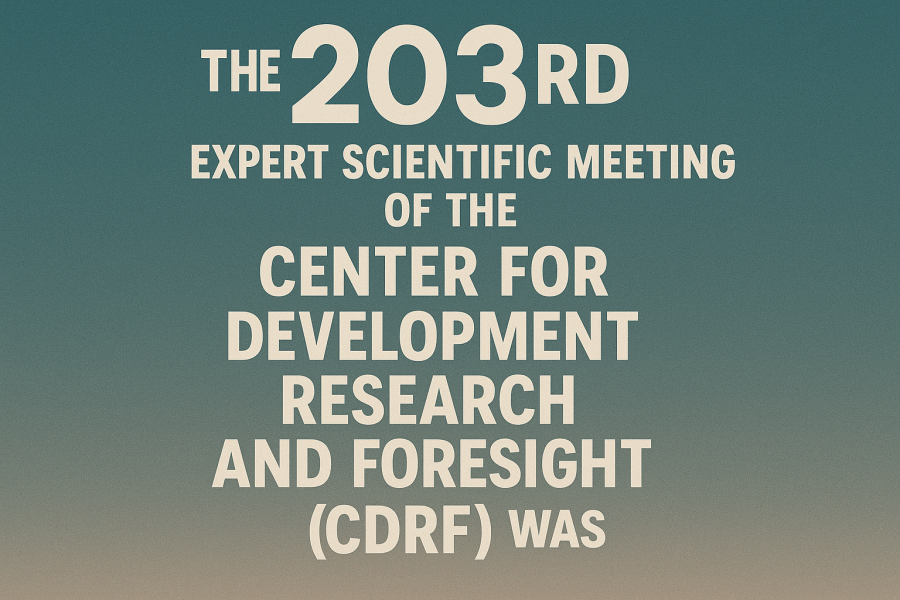
The 203rd Expert Scientific Meeting of the Center for Development Research and Foresight (CDRF) was held.
According to the Public Relations Office of the CDRF, the 203rd expert scientific meeting of the CDRF was held under the title “Analysis and Review of the Budget of State-Owned Enterprises in 1404 (2025-2026).” In this meeting, Mehdi Bagheri, former Head of State-Owned Enterprises, the Civil Servants Pension Fund (CSPF), and Public Institutions Affairs of the Plan and Budget Organization of the Islamic Republic of Iran (PBO), served as the scientific chair of the meeting. Additionally, Hassan Khoshpour, former Head of State-Owned Enterprises Affairs of the PBO, and Mohammad Nasir Arab Nosratabadi, Head of the State-Owned Enterprises and Non-Governmental Public Institutions Group of the PBO, participated as the keynote speakers, presenting their viewpoints.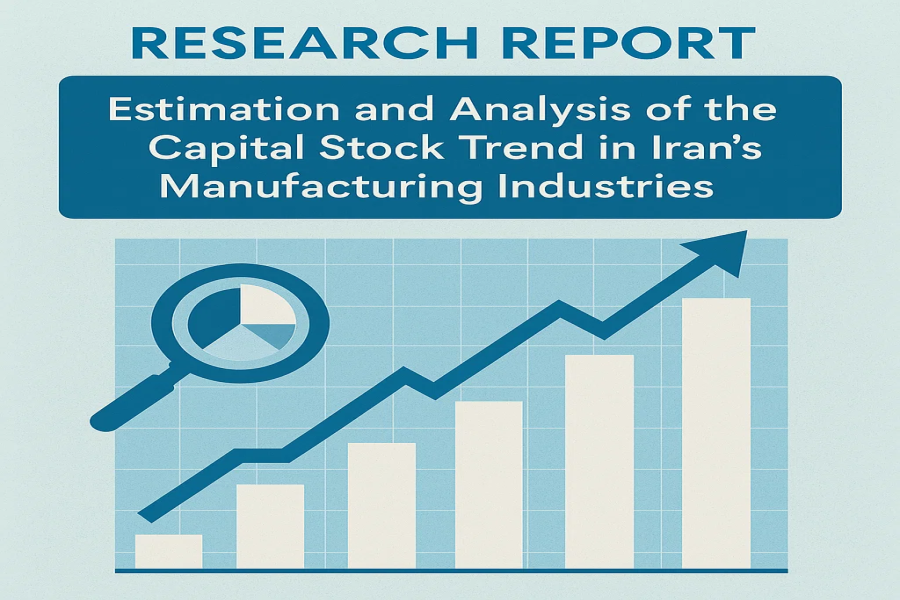
Research report on Estimation and Analysis of the Capital Stock Trend in Iran’s Manufacturing Industries
According to the Public Relations Office of the Center, the Research Group on Modern Systems of Planning, Budgeting, and Modeling at the Center for Development Studies and Foresight has published the research report titled:
The 201st Expert Scientific Meeting of the Center for Development Research and Foresight (CDRF) was held.
According to the Public Relations Office of the CDRF, the eleventh session of the series entitled “The Future Outlook of Iran” and the 201st meeting of the CDRF was held under the title “A Critical Assessment of the Vision of the Islamic Republic of Iran in the Horizon of 1404 AH.”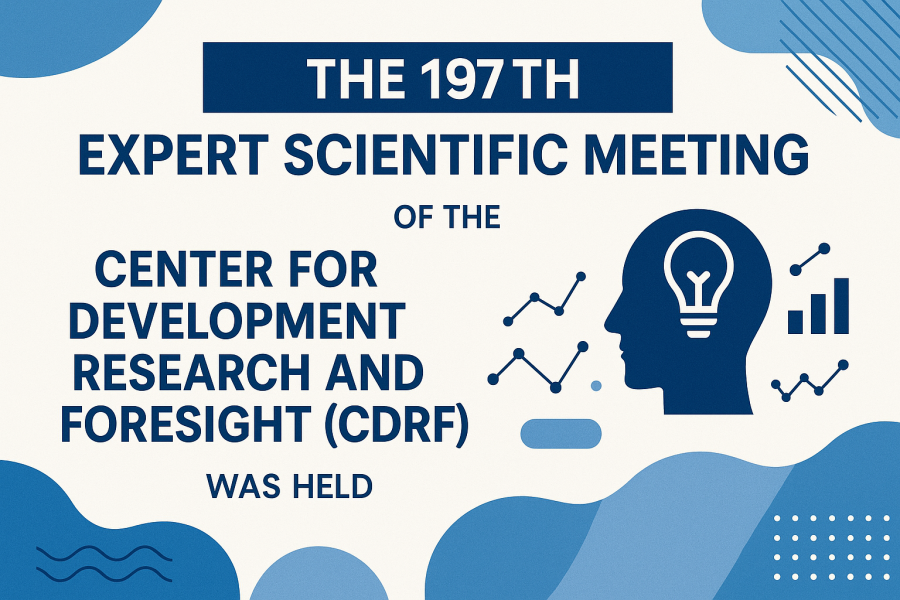
The 197th Expert Scientific Meeting of the Center for Development Research and Foresight (CDRF) was held.
According to the Public Relations Office of the CDRF, the seventh session in the series of meetings titled “The Future Vision of the Islamic Republic of Iran” and the 197th meeting of the CDRF was held under the title “The Role of Technology Development in Iran's Civil Vision.”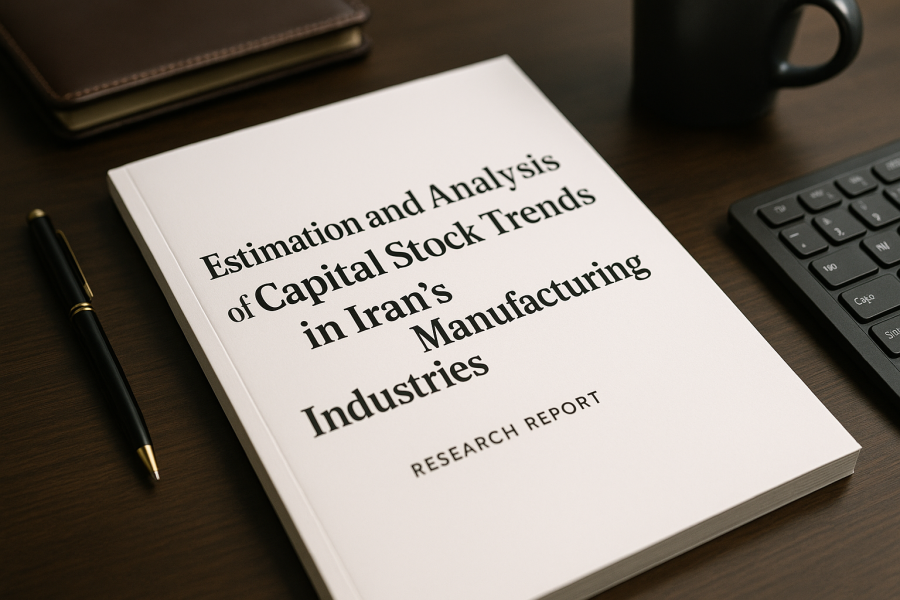
The research report titled “Estimation and Analysis of Capital Stock Trends in Iran’s Manufacturing Industries” was published.
According to the Public Relations Office of the Center for Development Research and Foresight (CDRF), the Research Group on Modern Planning, Budgeting, and Modeling Systems of the CDRF has published a research report entitled “Estimation and Analysis of Capital Stock Trends in Iran’s Manufacturing Industries.” A part of the introduction to this research report states:
امروز : سه شنبه، ۲۸ بهمن ۱۴۰۴


